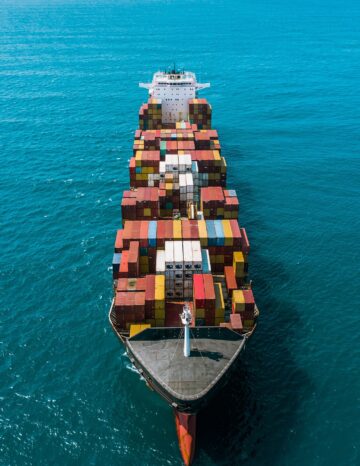Today’s industrial operations face a tough and fast-changing landscape.
Geopolitical tensions, shifting global supply chains, new digital tools like AI, economic uncertainty, sustainability pressures, and labour shortages all hit at once — and they’re all connected.
These challenges affect the whole industrial chain.
From sourcing raw materials to making products, shipping them out, and keeping customers happy — every step is part of a bigger system. A decision in one area can impact the whole process. To improve efficiency, you need to see the full picture.
The winners will be those who adapt fast and add value throughout their operations. To succeed, companies must build new skills, move quickly, and stay open to change — from start to finish.
Why this program?
 Managers within operations and supply chain need to enhance effectiveness and efficiency throughout the entire end-to-end flow from suppliers to customers. This program explores innovative ways of thinking and working to optimize this end-to-end flow, which in reality is a complex supply-, production- and distribution network.
Managers within operations and supply chain need to enhance effectiveness and efficiency throughout the entire end-to-end flow from suppliers to customers. This program explores innovative ways of thinking and working to optimize this end-to-end flow, which in reality is a complex supply-, production- and distribution network.
Additionally, the program prepares participants for the next step in their careers.
What will you learn?
- How taking the full industrial process into account – from sourcing and production to distribution – helps you enhance effectiveness and efficiency.
- How to leverage AI and digital technology across operations and supply chains.
- How to lead through uncertainty and drive change in a global, multicultural context.
How will you learn?
- You will learn from leading academics and industry experts, and through dialogue with visiting business leaders and peers.
- By focusing on your real-world challenges, you will link program themes to your daily work. Active sharing of experiences and high interactivity are key parts of the program.
- All sessions are delivered face-to-face and include visits to world-class industrial sites.

Very good program, covering a lot of ground within the scope of Supply Chain with deep dives in many relevant areas. Great discussions with experienced peers from other companies providing inspiration and valuable insights!
Fredrik Knopp Anjou — Head of Supply Chain Planning, Scania CV AB

The program was just the perfect mix of everything that has enabled me to develop as a leader and as a supply chain professional. I have gained knowledge in my own area of operation as well as outside my normal box, exploring insightful theories presented by highly skilled lecturers and exchanging experiences and challenges with a vast network of professionals from other industries. The program also provided the opportunity to witness impressive real-life processes firsthand at companies, openly sharing their operational procedures. I also greatly appreciated the social aspect of participating in the program.
Petra Engblom — Global Head of E2E Supply Planning, Sobi (Swedish Orphan Biovitrum)

Jag kan varmt rekommendera utbildningen Operations and Supply Chain Management. Utbildningen var välstrukturerad och innehöll en mängd värdefull information som var direkt tillämplig i praktiken. Lärarna var kunniga och engagerade, och sammansättningen av kursdeltagare från många olika företag var kanon. Under utbildningen fick jag möjlighet att delta i interaktiva övningar och gruppdiskussioner, varav vissa byggde på verkliga case ifrån de företagen som var representerade. Jag uppskattade också de resurser och material som tillhandahölls, vilket gjorde det lättare att följa med i kursinnehållet.
Andreas Håkansson — Head of Logistics Braås, Volvo Construction Equipment

Participating in this program has been a highly positive experience. I value its balanced mix of lectures on supply chain and operations management, site visits to world-class plants, and insightful discussions with fellow participants. The networking opportunities with peers from top industrial companies and the seamless integration of theory and practice are, in my view, its key strengths.
Jörgen Wallin — Supply Chain Manager Rotating Parts, GKN Aerospace

I fully recommend the program!
Frida Johansson — Superintendent, Internal Logistic Body Shop, Volvo Car Corporation
Program information
 For whom
For whom
The program targets key managers responsible for critical functions, such as:
✔ Supply chain managers,
✔ Logistics managers,
✔ Procurement/Sourcing managers,
✔ Production managers.
Program start, length and location
The program starts 24 March, 2026 and consists of four modules, each spanning three days. Participants are not required to complete any assignments between modules. The program is hosted at KTH Campus in Stockholm, with accommodation within walking distance.
Calendar
Module 1 24-26 March, 2026
Module 2 26-28 May
Module 3 8-10 September
Module 4 17-19 November
Language
English
Fee
The program fee is SEK 120,000, excluding VAT. This fee does not include room, board, or travel expenses.
Please note that KTH Executive School will handle meal expenses separately. Therefore, an additional fee of SEK 15,000 will be charged upfront to cover meals for the duration of the program.
Regarding hotel accommodations, KTH Executive School reserves rooms for all participants, who are expected to settle the bill upon checking out on each occasion.
Benefits to you
- Expand your knowledge: Broaden your perspective and learn cutting-edge strategies to optimize operational effectiveness across the network from suppliers to customers.
- Enhance leadership skills: Tackle day-to-day challenges with new leadership insights.
- Acquire modern tools: Gain practical tools to improve your area of responsibility effectively.
- Network and learn: Build relationships with fellow managers facing similar challenges and learn from the experiences of international industrial leaders.
Benefits to your organization
- Enhance key capabilities: Equip crucial managers with the skills needed to drive success.
- Optimize the entire value network: Strengthen conditions to improve effectiveness and efficiency across the industrial network from suppliers to customers.
- Increase agility and resilience: Build stronger capabilities for agile responses to change and greater resilience in the face of uncertainty.
- Strengthen business growth: Create conditions that foster improved business results.
For further information you are welcome to contact
Per Gårdnäs
Director Business Development
+46 (0)72 511 74 71
per.gardnas@es.kth.se
Program content

Perspectives on Industrial Operations in Transformation
• The ongoing shift in international industrial operations
• Strategies to adapt and thrive in a rapidly changing business environment
• The impact of organizational designs and governance models on operational efficiency
Digital Technologies and New Ways of Working
• Strategies for leveraging AI
• Approaches for selecting new technologies and methods
• Smart Factory and Industry 4.0 applied in world-class industrial operations

Industrial Production and Logistics
• Production, logistics, and capacity to scale up and down flexibly in a dynamic environment
• Production systems and methods for continuous improvement and circularity
• Experience-based approaches to rethink production
Supply Chain Management and Strategic Sourcing
• The end-to-end supply chain and how it is evolving
• Market insight and supply chain responsiveness
• Strategic sourcing and supply networks

Leading Daily Operations and Change
• Leading daily operations and driving change simultaneously
• Managing uncertainty, paradoxes, and multiple stakeholders
• Communicating effectively while leading in a global, multicultural context

